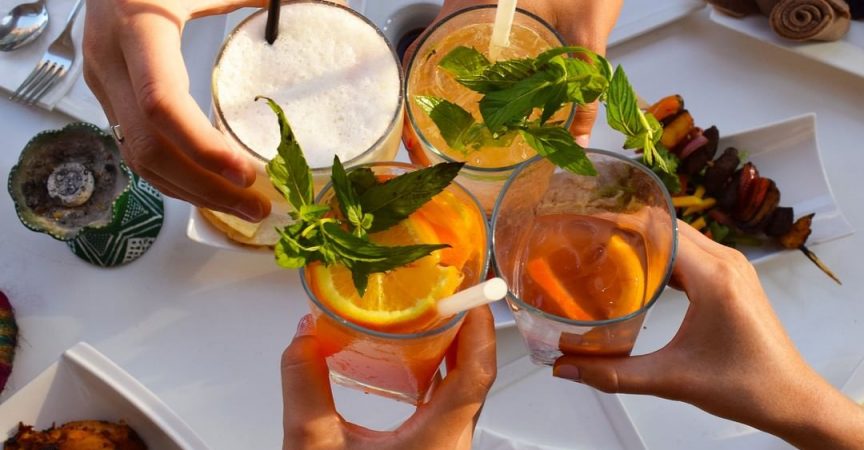For Nunu Rampen, ‘Nothing Exposes People’s Most Basic Biases – and Loves – More Than Food’
All photos via @nunufusion, Instagram
When a restaurant is touted to be a favourite of Jake Gyllenhaal and counts Idris Elba among its customers, I trust that the menu does not disappoint. Nunu Ethiopian Fusion restaurant is located on trendy Queen West in downtown Toronto. Owned and operated by Nunu Rampen, the restaurant is a family affair; her team consists of her husband – Chris, sister, and daughters that jump in when needed.
Nunu’s passion for cooking began at a very early age. Her mother ran a 100-seat ‘Tej house’ serving Ethiopian Honey wine and barbecue in the town of Nazareth, Ethiopia. When she was 16 she was sent to Kenya with her uncle, a UN diplomat, to escape the Mengistu regime then in power. In Kenya, she learned to formally cook from the UN Mission chef – a Cordon Bleu-trained chef named Roma. Beyond learning French, Italian, Indian, and Kenyan cuisines, she learned the formal discipline and logistics of cooking for large groups.
She came to Canada to help her sister Aster: a single mother who had bravely just opened the Addis Ababa – one of the first Ethiopian restaurants in the city. Together they ran the Addis with Nunu doing the cooking and Aster running the front. The Addis had a long life – almost 27 years – and essentially came to an end when Aster returned to Ethiopia to start a construction company.
For her next venture, Nunu wanted to explore a more upscale Ethiopian dining experience, so when her previous landlord offered her a space on Queen West she jumped at the opportunity. The restaurant is a labour of love —it was designed by Nunu herself — as Nunu and her husband Chris gutted and built the establishment together. Featuring an open kitchen and a simple but elegant bar, the space is a beautiful but approachable dining experience.
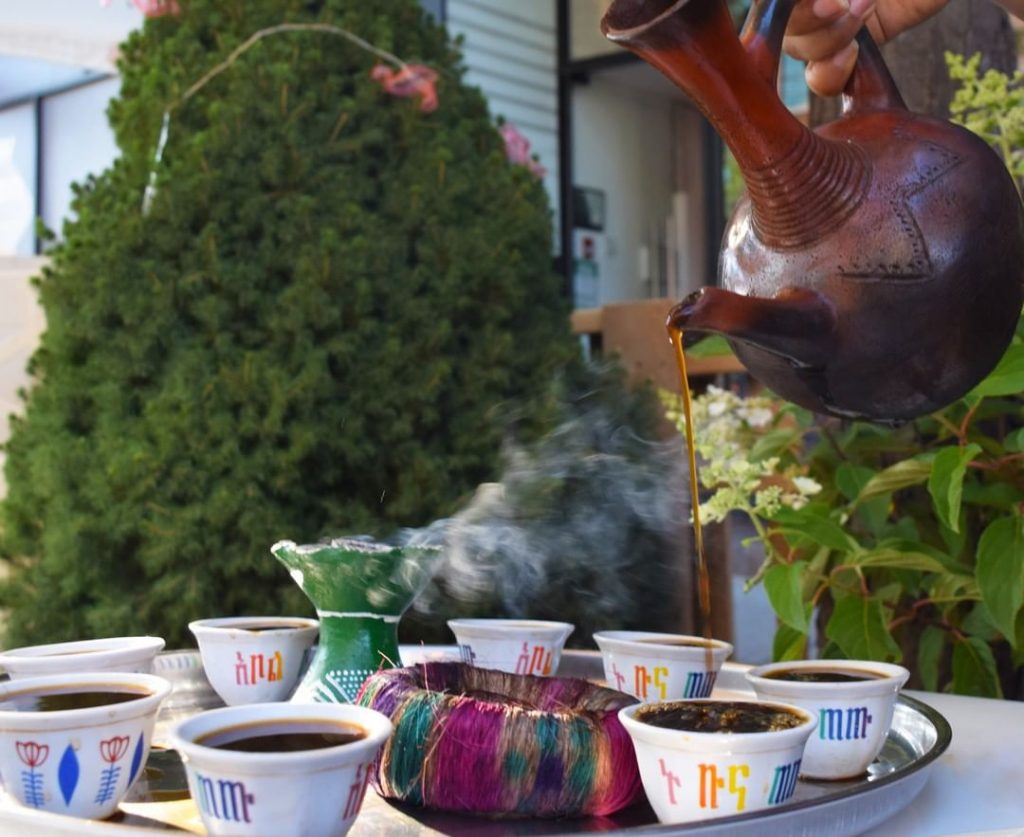
Nunu’s mantra is to create fresh, light, and healthy Ethiopian fusion cuisine that is responsive to the seasonal variations of North America. Injera (Ethiopian sourdough bread) is made inhouse every morning and Nunu leverages local ingredients as much as possible; during the summer much of the produce comes from the family garden in Oakville and the meat from nearby Mennonite farms.
The menu is divided into ‘herbivore’ and ‘carnivore’ – which reflects the way Ethiopians eat. Ethiopian cuisine does not heavily feature desserts, so Nunu blends Western styles and ingredients with unique flavours for dishes like Moroccan Saffron Pears with homemade Ricotta and a trifle with peaches from Two Centuries Farm in Grimsby. At Nunu’s bar, you’ll find Chris slinging New Orleans style classic cocktails. “I think we are the only people doing a proper Sazerac in the neighbourhood,” Nunu points out.
In the 12 years since Nunu opened, the team has garnered rave reviews. “We would like to think that we are the first upscale Ethiopian/North East African restaurant in Toronto and maybe even Canada or North America,” says Nunu. However, this hasn’t resulted in the media spotlight they should deserve.
“Toronto Life has never done an article on us or our sister restaurant Cafe Bu’na. They did do an article when Addis closed though, which gives the impression they were waiting for its demise! In fact, they have never done an article on any Ethiopian restaurant – one of the oldest international cuisines. How is that possible?”
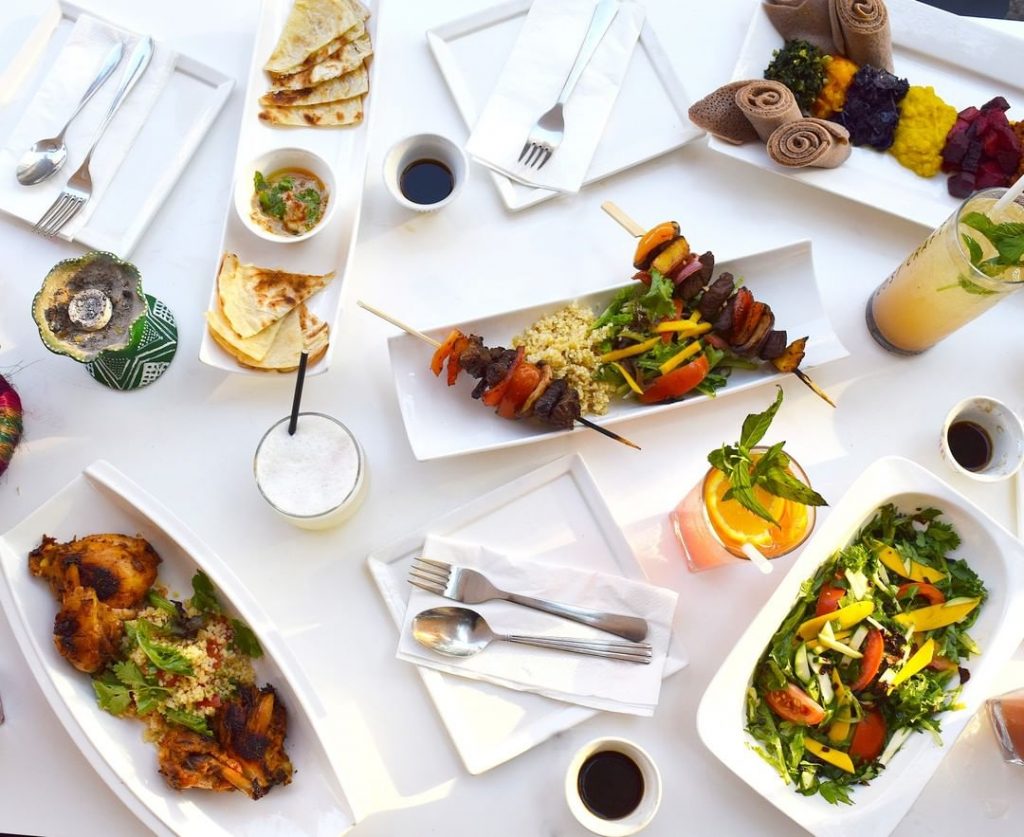
Ethiopia is the birthplace of coffee, as Nunu points out, “just as France is the place for cheese culture.” However, it’s an introspective question that we need to ask ourselves – is the level of admiration or respect for Ethiopia the same as it is for France? “No one else on the planet spends two hours every day of their adult life having a coffee,” Nunu states.
The oversight and exclusion of Black-owned restaurants on behalf of mainstream media (MENU included), is just one example of how the foodservice industry needs changing and needs to evolve into a more inclusive and welcoming space.
On this, Nunu explains the much-needed shift in her own words: “ I think the first step is to throw out the French model where the chef is a feudal overlord. This allows a lot of bad behaviour and it is not a helpful relationship. We are talking about creating a social fabric where we treat everyone with respect and love wherever we come from. This will take time and self-reflection by all of us. Lip service and faux concern isn’t going to change anything.”
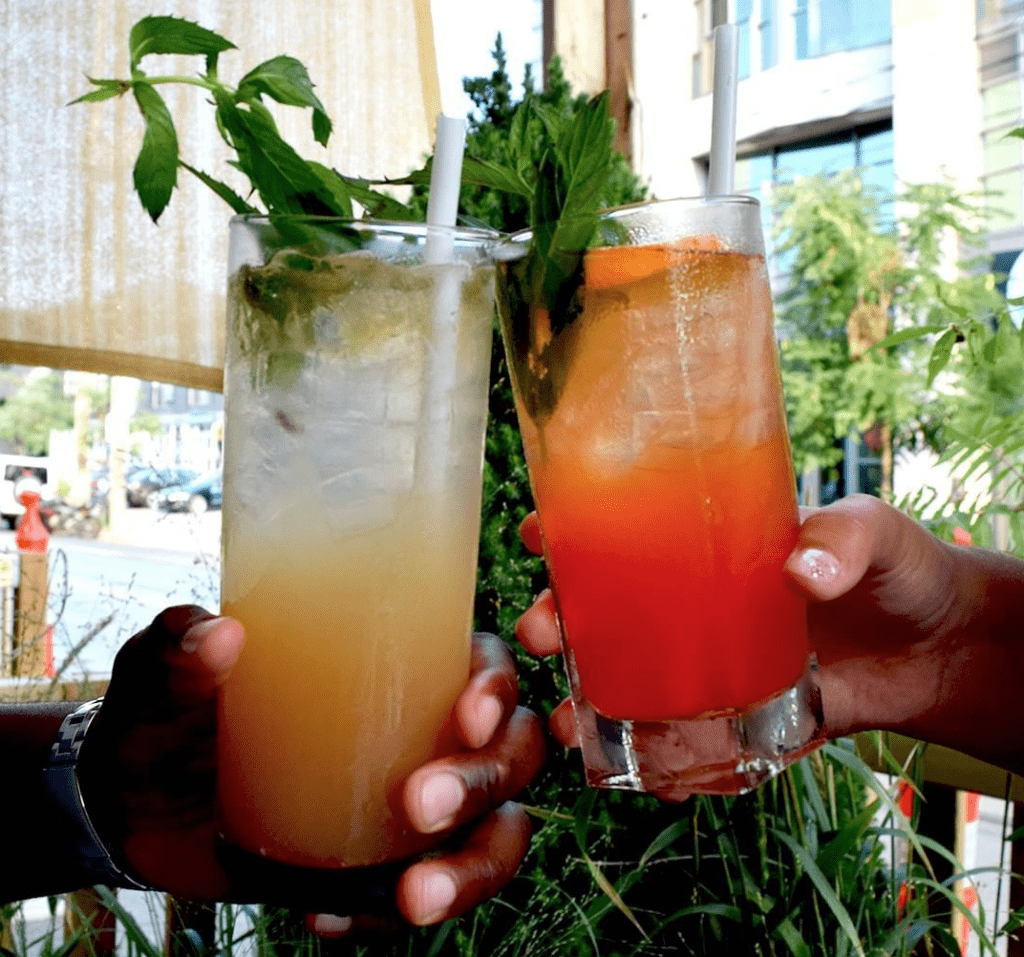
It’s not just the fact that we (as an industry or even as consumers) aren’t supporting Black-owned foodservice operations, but it’s that we aren’t showing up in a beneficial or meaningful way.
Nunu provides insight into this, “Avoid stereotypes. [There’s a tendency to lump] African cuisine as a single thing and speak of the Black experience as monolithic. Ethiopian food is a completely different cuisine than South African, Ghanaian, and Moroccan. We tend to lump ‘Blackness’ as a singular experience but it is not. The world view of an Ethiopian is very different from a Jamaican.”
This is why organizations like BLACK FOODIE are so essential to foodservice. BLACK FOODIE is a versatile media platform dedicated to amplifying Black voices and experiences in the food industry, celebrating Black food culture, and empowering foodies around the world through unique initiatives and partnerships with industry leaders.
Nunu puts it succinctly when she says, “Nothing exposes people’s most basic biases – and loves – more than food. The biases may not be racist in origin but they are powerful and they inhibit real relationships. How can you really begin to know someone if you can’t eat with them?”
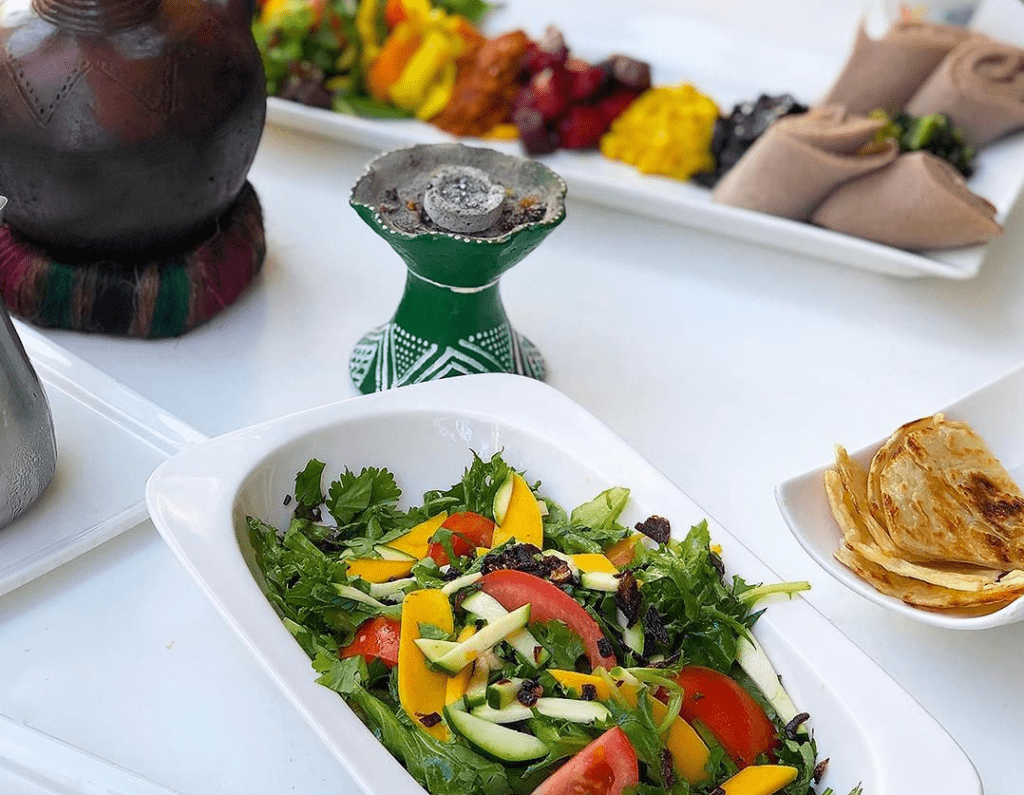
To Nunu (and many others), BLACK FOODIE’s work is so valuable to their business. In the past, Nunu has worked with BLACK FOODIE and founder Eden Hagos on their first live event – Injera & Chill in 2017, and over the years, Eden has featured Nunu and the team in articles and through their various social channels.
“BLACK FOODIE is part of breaking down these barriers,” furthers Nunu. “For many people, there is this peculiar hierarchy in the food world where French haute cuisine is at the pinnacle and everything is somewhere below. I think the work that they’re doing is having an impact on this ideal slowly going away, and I’m hopeful that there will continue to be a growing appreciation for all cuisines, for street food, and honest artisanal things.”
From September 20-27th, 2020, BLACK FOODIE will be hosting BLACK FOODIE Week, a virtual celebration of the diversity of African and Caribbean food in Toronto. Get tickets for immersive cooking classes and engaging panel events with Black food experts over at blackfoodie.co/black-foodie-week.



